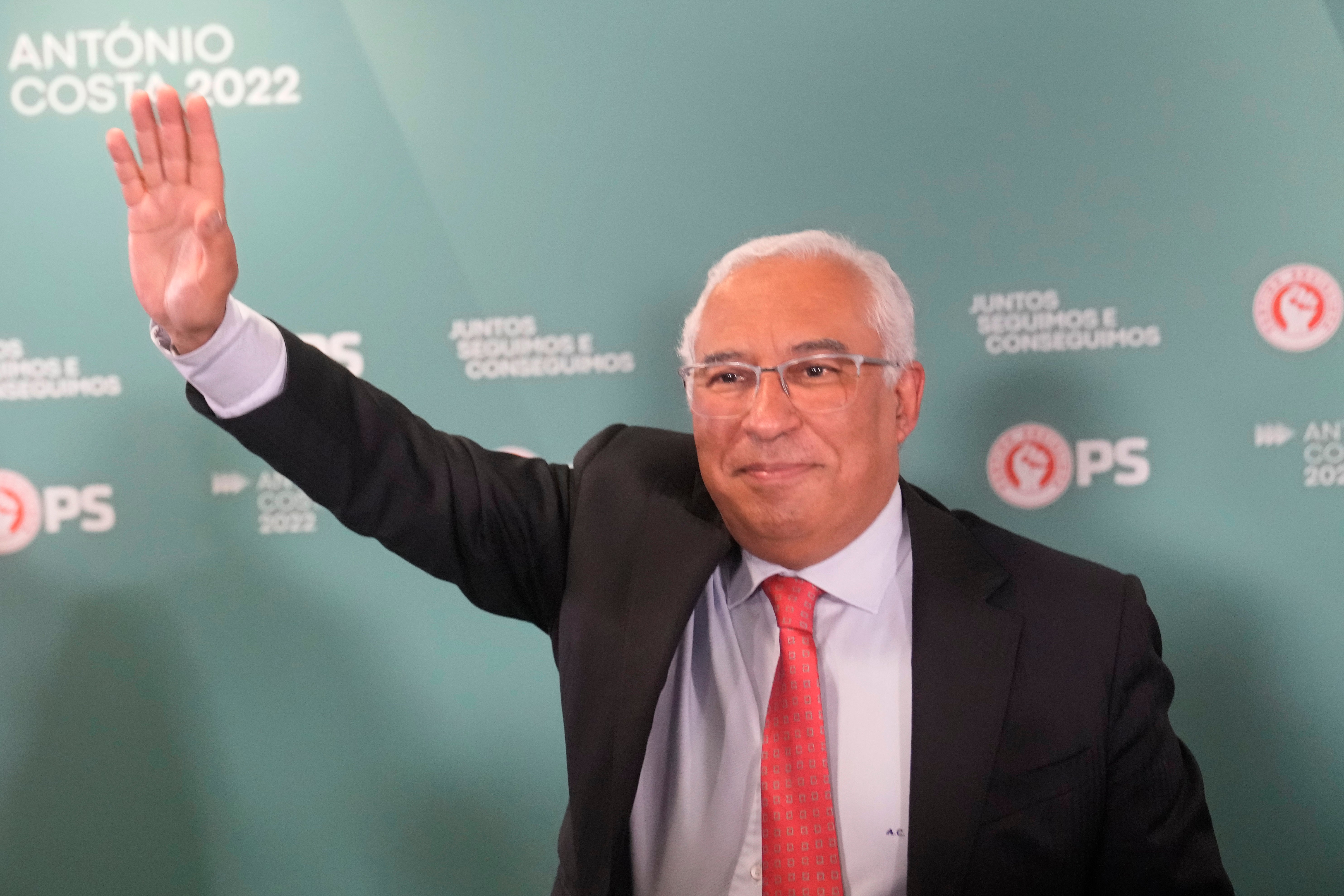Portugal’s center-left Socialists get landslide election win
The center-left Socialist Party has won a landslide victory in Portugal’s general election

The center-left Socialist Party won a landslide victory in Portugal’s general election, removing a political roadblock that had halted its plans to spend billions of euros (dollars) of European Union aid for the economy after the COVID-19 pandemic.
The Socialists collected 41.7% of the vote and 117 seats in the 230-seat parliament in Sunday’s ballot. That majority will allow the Socialists over their four-year term to enact legislation without the support of other parties.
The center-right Social Democratic Party came second with 27.8% and 76 seats, with four seats still to be allocated Monday.
The snap election was called after parliament last November rejected Socialist Prime Minister António Costa’s state budget proposal for 2022. It contained his plans to begin deploying 45 billion euros ($50 billion) of EU aid for the economy over the next seven years.
Portugal’s economy needs a shot in the arm, which the EU funds may bring. The country of 10.3 million people is western Europe’s poorest.
“The Portuguese have shown a red card to any type of political crisis,” Costa said in his victory speech, referring to the fall of his minority government two months ago.
“The Portuguese showed that in coming years they want stability, certainty and security, with our country on a sure path,” he told flag-waving — and mask-wearing — supporters at a hotel in the capital, Lisbon
The ballot took place amid a surge of coronavirus cases blamed on the omicron variant. Around 1 million infected voters were allowed to leave home to cast their ballots.
Two-thirds of the EU funds are intended for public projects, such as major infrastructure, giving the government a financial bonanza. The other third is to be awarded to private companies.
A parliamentary majority smooths the government’s path in allocating those funds in a country whose economy has struggled to gain traction since the turn of the century.
The country has been falling behind the rest of the 27-nation EU since 2000, when its real annual gross domestic product per capita was 16,230 euros ($18,300) compared with an EU average of 22,460 ($25,330). By 2020, Portugal had edged higher to 17,070 euros ($19,250) while the bloc’s average surged to 26,380 euros ($29,750).
The Socialists promised to increase the minimum monthly wage, earned by more than 800,000 people, to 900 euros ($1,020) by 2026. It is currently 705 euros ($800). The Socialists also want to “start a national conversation” about working four days a week instead of five.
Some 10.8 million voters — 1.5 million of them living abroad — were eligible to choose lawmakers in the Republican Assembly, Portugal’s parliament, where political parties then decide who forms a government.